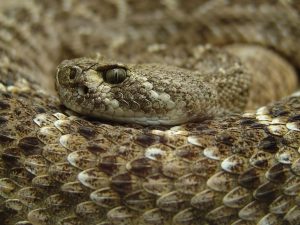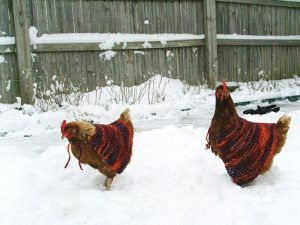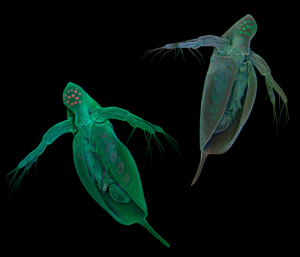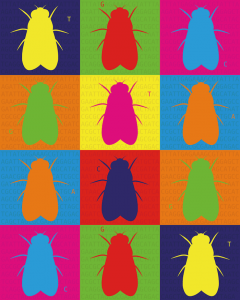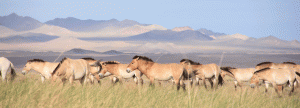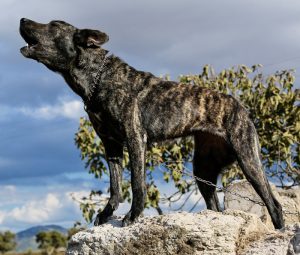Enter your address to receive notifications about new posts to your email.
Articles tagged Population Genetics
(74 results)
-
Venom holds clues to triggers of gene family expansion
They rattle as warning, but during the hunt their strike is silent and sudden. Any rabbit or mouse targeted by a rattlesnake is doomed—the snake’s bite carries a paralyzing venom. The toxins in this venom are proteins encoded by a large gene family that arose by gene duplication. In the July issue of GENETICS, Margres…
-
Hot wings and snow birds: Extreme temperature adaptation in domestic chickens
Humans built the modern world with the help of domestic plants and animals. A byproduct of our many domestication experiments is a series of excellent long-term controlled evolutionary comparisons that are helping geneticists understand adaptation. In a study published in the May issue of G3, Fleming et al. identify genomic regions under natural selection in…
-
MPP People: Andrew Morgan
Multiparental populations (MPPs) have brought a new era in mapping complex traits, as well as new analytical challenges. To face these challenges and encourage innovation, the GSA journals launched the ongoing Multiparental Populations series in 2014. This month’s issues of GENETICS and G3 feature a bumper 16 MPP articles, timed to celebrate a new easy-to-use…
-
On the cover: Daphnia in the spotlight
Illuminating the cover of the May issue of G3 is a lake-dwelling filter feeder no more than a couple millimeters long. This microcrustacean—Daphnia pulex, also known as the water flea—is an important model organism, especially in ecological genetics. But despite Daphnia’s status as a model organism, no one had examined its population genomics until now.…
-
50 years of molecular evolution in Drosophila
In the genomic era, population geneticists are flooded with molecular data on the evolution of natural populations. This deluge started in 1966 as a trickle of data from protein electrophoresis studies, including the landmark GENETICS papers published by Richard Lewontin and John Hubby. As Lewontin is honored this week at the Annual Drosophila Research Conference…
-
Richard Lewontin is awarded the 2017 Morgan Medal
We are pleased to announce that Richard C. Lewontin, PhD is the 2017 recipient of the Thomas Hunt Morgan Medal for lifetime achievement in the field of genetics. This award recognizes Lewontin’s extensive impact on our understanding of evolution, a broad and deep influence that has shaped the field. An unprecedented 160 distinguished biologists co-signed a…
-
The unique genetic variation of the Greenlandic Inuit population could help find novel disease associations
Despite being covered by a massive, permanent ice sheet, Greenland has been continuously inhabited by humans for over a thousand years. Most modern Greenlanders are Inuit whose ancestors migrated eastward from Canada around 1000 AD, bringing technology like kayaks and dogsleds. They eventually settled on the coasts of the world’s largest island, hunting whales and…
-
The Genetic History of Horses
Like any revolutionary technology, domestic horses changed human society. The incredible speed and strength of these animals opened up new opportunities to spread trade, language, and culture. For thousands of years, horses have been helping build human society by pulling wagons and plows and carrying soldiers and travelers on their backs. Horse husbandry changed humanity,…
-
Genomic study of high school students from across Denmark reveals remarkable genetic homogeneity
People from Denmark are genetically similar to each other no matter which part of the country they come from, report researchers in the journal GENETICS, a publication of the Genetics Society of America. Eight hundred Danish high school students contributed genetic material to the Where Are You From? project, and the data were used to…
-
Genome of fiercely protective Fonni’s Dog reflects human history of Sardinia
A genomic analysis of 28 dog breeds has traced the genetic history of the remarkable Fonni’s Dog, a herd guardian endemic to the Mediterranean island of Sardinia. The results, published in this month’s issue of GENETICS, reveal that the regional variety has developed into a true breed through unregulated selection for its distinctive behavior, and that…
-
Can gene drives survive in the wild?
Efforts to engineer genomes in wild populations have huge potential for good—but the real world is more complicated than the lab. Until now, humans have never been able to seriously consider how to cheat evolution. But now that the CRISPR/Cas9 system has made genome editing easy and efficient, it might be possible to manipulate the…

